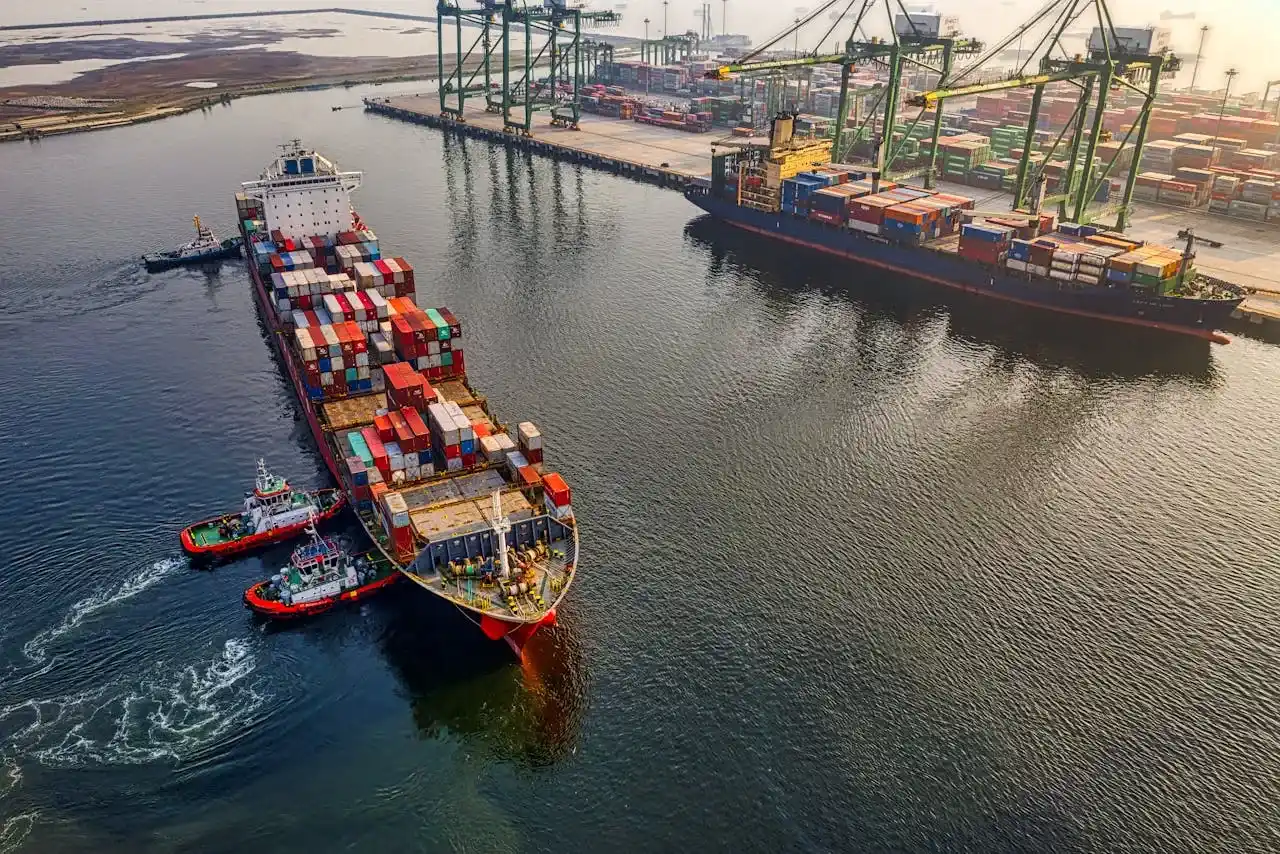International Trade & Sanctions Law Practice
Navigate complex global trade regulations with strategic precision
Cross-Border Compliance • Sanctions Expertise • Strategic Risk Management
International Trade & Sanctions Law Partner Transitions. In an era of escalating trade tensions, evolving sanctions regimes, and complex supply chain regulations, international trade and sanctions lawyers are navigating unprecedented demand. KiLawyers™ specializes in placing partners who guide multinational corporations, financial institutions, and sovereign entities through the intricate web of global trade compliance, export controls, and economic sanctions.
Current Market Dynamics
- Sanctions complexity: Multi-jurisdictional enforcement and rapidly evolving regimes
- Supply chain scrutiny: ESG compliance, forced labor regulations, and transparency requirements
- Trade remedy surge: Anti-dumping, countervailing duties, and safeguard investigations
- Technology controls: Export restrictions on dual-use technologies and emerging tech sectors
- Financial sector demand: Banks seeking specialized sanctions screening and compliance expertise
Why International Trade & Sanctions Partners Choose KiLawyers™
Deep Sector Understanding
International trade and sanctions law requires unique expertise at the intersection of regulatory compliance, geopolitical strategy, and commercial pragmatism. We understand the nuances that differentiate practices:
Deep Sector Understanding
International trade and sanctions law requires unique expertise at the intersection of regulatory compliance, geopolitical strategy, and commercial pragmatism. We understand the nuances that differentiate practices:
- • Regulatory vs. Advisory Focus: Whether you primarily handle OFAC licensing, customs compliance, or strategic trade policy advisory
- • Industry Specialization: Financial services, technology, energy, defense, or pharmaceutical sector expertise
- • Geographic Coverage: U.S., EU, UK, or multi-jurisdictional sanctions and trade control capabilities
- • Government Experience: Value of prior experience with OFAC, BIS, State Department, or international organizations
- • Crisis Management: Track record handling enforcement actions, voluntary disclosures, and urgent delisting matters
Platform Alignment for Trade Practices
Not every firm provides the infrastructure for successful international trade practices. We assess:
- • Global Footprint: Presence in key jurisdictions for coordinated multi-jurisdictional advice
- • Cross-Practice Integration: Synergies with corporate, litigation, and white-collar teams
- • Government Relations: Strength of policy and lobbying capabilities for trade remedies
- • Technology Infrastructure: Sanctions screening tools, trade compliance databases, and secure communication systems
- • Client Base Alignment: Existing relationships with multinationals, financial institutions, or sovereign entities

Strategic Cross-Border Advisory
Coordinating complex international trade matters across multiple jurisdictions
Market Intelligence: International Trade & Sanctions
Demand Drivers Reshaping the Practice
Geopolitical Realignment
The fundamental restructuring of global trade relationships has created sustained demand for sophisticated counsel. From U.S.-China decoupling to evolving Russia sanctions, companies need partners who combine technical expertise with strategic judgment about geopolitical risk.
Regulatory Convergence and Divergence
While some areas see harmonization (like ESG supply chain requirements), others face increasing fragmentation. Partners who can navigate both trends—helping clients find efficiency in convergence while managing complexity in divergence—command premium valuations.
Technology and National Security
The intersection of trade controls and emerging technology has created a high-growth subspecialty. Export controls on semiconductors, AI, quantum computing, and biotechnology require partners who understand both the technology and the evolving regulatory landscape.
Compensation Trends
- • Premium Positioning: Trade & sanctions partners command 15-25% premiums over general regulatory practices
- • Guarantee Evolution: 2-3 year guarantees common for established practices with government backgrounds
- • Origination Credit: Recognition for both direct client relationships and cross-practice referrals
- • Performance Metrics: Balanced scorecards valuing thought leadership and policy influence alongside financials
Critical Success Factors for Lateral Moves
Portable Practice Considerations
International trade practices present unique portability dynamics:
Client Transition Complexity
International trade matters present unique portability challenges:
- • Institutional vs. Personal Relationships: Many trade matters are enterprise-wide, requiring careful client transition planning
- • Consortium Dynamics: Managing transitions within joint venture and consortium structures
- • Government Stakeholders: Navigating state-owned enterprises and ministry relationships
- • Conflict Considerations: Complex web of operator, non-operator, investor, and service provider conflicts
Team Composition Requirements
Trade practices often require specialized support:
- • Technical Expertise: Access to engineers, geologists, and industry specialists
- • Local Counsel Networks: Relationships in key mining and energy jurisdictions
- • Project Management: Infrastructure for long-term, document-intensive transactions
- • 24/7 Capability: Global coverage for time-sensitive commodity trading and crisis response
Integration Requirements
Successful integration of trade & sanctions partners requires:
- • Early Client Introductions: Given the compliance-critical nature of the practice, clients need confidence in the new platform immediately
- • Cross-Practice Education: Internal teams must understand when and how to involve trade counsel
- • Technology Transfer: Ensuring continuity of screening tools and compliance databases
- • Marketing Investment: Thought leadership and visibility in the trade bar are essential for practice development

Advanced Sanctions Screening Infrastructure
Technology-enabled compliance solutions for global financial institutions
Strategic Opportunities by Subsector
Economic Sanctions & Export Controls
The complexity of modern sanctions regimes—from sectoral sanctions to the novel use of export controls as foreign policy tools—has created unprecedented demand. Partners with experience navigating OFAC, BIS, and multilateral sanctions find particular opportunity at:
- • Firms building financial sector practices requiring embedded sanctions expertise
- • Platforms expanding into emerging markets needing sophisticated risk assessment
- • Boutiques seeking to add government enforcement defense capabilities
Trade Remedies & Policy
The resurgence of trade remedies as tools of industrial policy has revitalized this practice area. Partners with experience in anti-dumping, countervailing duties, and Section 301 investigations are valued for:
- • Deep agency relationships with Commerce Department and USTR
- • Industry expertise in strategic sectors (steel, solar, semiconductors)
- • Capability to coordinate global trade remedy strategies
Supply Chain Compliance
The convergence of ESG requirements, forced labor regulations, and supply chain transparency has created a new growth area. Partners who can address UFLPA compliance, conflict minerals, and sustainable supply chain requirements find strong platforms at:
- • Firms with strong ESG and sustainability practices
- • Platforms serving manufacturing and retail sectors
- • International firms needing U.S. regulatory expertise
CFIUS & Foreign Investment
The expansion of foreign investment screening globally has created demand for partners who can navigate CFIUS, EU FDI screening, and similar regimes. This subspecialty commands premium economics given the high-stakes nature of cross-border M&A.
Geographic Considerations
Key markets for international trade and sanctions practice:
Primary Markets
- • Washington, D.C.: Regulatory epicenter with government proximity
- • New York: Financial sector sanctions and compliance hub
- • London: European sanctions coordination and City compliance
- • Brussels: EU trade policy and regulatory center
Emerging Opportunities
- • Miami: Latin American trade and sanctions hub
- • Houston: Energy sector trade and sanctions expertise
- • San Francisco: Technology export controls and CFIUS
- • Singapore: Asia-Pacific trade compliance center

Strategic Trade Policy Advisory
Shaping regulatory outcomes through policy engagement and advocacy
Platform Selection Criteria
What Makes a Platform Optimal for Trade Partners
Global Coordination Capabilities
Trade and sanctions matters rarely respect borders. Optimal platforms offer:
- • Seamless cross-border collaboration infrastructure
- • Unified conflict checking across jurisdictions
- • Consistent service delivery standards globally
- • 24/7 response capability for sanctions emergencies
Industry Depth
Given the sector-specific nature of many trade regulations:
- • Deep industry knowledge in regulated sectors
- • Existing C-suite relationships for enterprise-wide mandates
- • Understanding of industry-specific compliance challenges
- • Track record in sector-specific enforcement matters
Government Relations Strength
The intersection of law and policy requires:
- • Robust government affairs capability and relationships
- • Ability to coordinate legal and policy strategies
- • Platform for thought leadership and policy influence
Risk Factors and Mitigation Strategies
Common Transition Challenges
Client Transition Complexity
International trade matters involve long-term compliance programs and enterprise-wide relationships. Mitigation strategies include:
- • Detailed transition planning with extended overlap periods
- • Co-counseling arrangements during transition
- • Clear communication about platform advantages
- • Investment in replicating technology infrastructure
Team Composition Requirements
Trade practices often require specialized mid-level expertise. Consider:
- • Package moves including key team members
- • Hiring commitments for necessary specializations
- • Training programs for existing platform resources
- • Flexible staffing models for surge capacity
Conflict Management
Industry-wide investigations and compliance programs create complex conflicts. Address through:
- • Early comprehensive conflict analysis
- • Creative structural solutions (screens, separate teams)
- • Transparency with clients about conflict management
The KiLawyers™ Advantage for Trade & Sanctions Partners
Specialized Market Intelligence
We maintain real-time intelligence on:
- • Firm investments in trade and sanctions capabilities
- • Recent lateral movement and success rates
- • Compensation benchmarks by subsector and seniority
- • Platform-specific integration support
- • Technology and infrastructure investments
Strategic Positioning
We position your practice beyond portable metrics:
- • Policy influence and government relationships
- • Thought leadership and market visibility
- • Crisis management track record
- • Cross-practice synergy potential
- • Geographic and sector coverage
Comprehensive Integration Planning
Our 100-day plans for trade partners address:
- • Client transition and communication strategies
- • Technology and database continuity
- • Team building and training requirements
- • Cross-practice introduction protocols
- • Early win identification and pursuit
Current Searches and Opportunities
We're actively working with leading platforms seeking:
Senior Sanctions Partners
Financial sector focus, OFAC expertise, crisis management experience
Trade Remedies Leaders
Manufacturing sector, agency relationships, policy capability
Supply Chain Compliance Heads
ESG/UFLPA expertise, Asia experience, technology sector
CFIUS/FDI Partners
Cross-border M&A, technology sector, government background
Regional Practice Leaders
Building or expanding trade practices in key markets
Platform Building Initiatives
US firms expanding international mining capabilities, UK firms strengthening Americas presence, Asian firms developing Africa and Middle East practices
Success Metrics We Track
For every trade & sanctions partner placement, we monitor:
client retention through year one
average practice growth in first 18 months
new matters from platform clients within first quarter
retention of key team members through transition
plan completion and success metrics
Ready to Explore Your Strategic Options?
International trade and sanctions law is experiencing a generational transformation. Whether you're seeking a platform with deeper government relations, broader geographic reach, or stronger industry alignment, we provide the intelligence and process to make your transition successful.
Your expertise in navigating complex global trade regulations deserves a platform that maximizes your impact while maintaining the confidentiality and control you require.